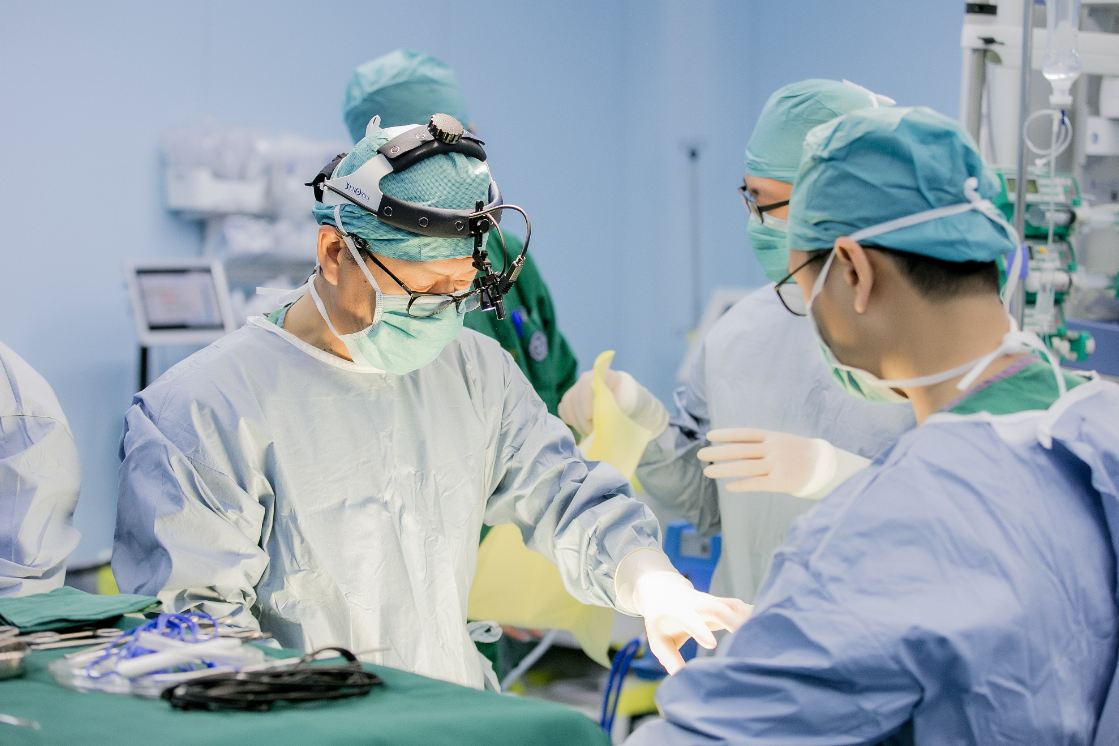Giving healthcare a digital edge


Founder Group unit invests in medical innovation centers to modernize industry
Using its subsidiary PKU Healthcare, Founder Group, a Chinese technology company, plans to establish a comprehensive medical innovation center by 2020 in Beijing.
Its plan is to execute projects like overseas incubation and cross-border investment and establish new branches in other suitable global markets.
PKU Healthcare began to establish a new innovation center in Boston in the United States in early November, a major step for the company to push its presence in global markets.
The innovation center's role is to seek and invest in healthcare projects, recruit overseas talent, develop international remote consultation and train its employees, as well as establish a fund to assist all these activities in the US.
Song Jinsong, chief executive officer of PKU Healthcare, said there are many opportunities to further optimize advanced technologies and human resources to improve services in this sector. These opportunities come from China's growing demand for quality healthcare solutions and medicines, as well as from international collaboration, he said.
Such demand comes in the wake of the government's plan, announced in March, to make coordinated moves to accelerate research and development of various types of medicine and medical equipment, provide healthcare services from top-tier cities to rural areas, and reform healthcare pricing, staffing and remuneration, and medicine distribution.
Song said the innovation center's location in Boston will help the company to access the world's cutting-edge technologies in many areas, as the city has abundant talent resources from medical, engineering, electronics, computer sciences and other fields.
They have made many scientific breakthroughs in various segments such as medical devices, molecular diagnostics and digital healthcare service, he said.

In addition to the US, PKU Healthcare is also looking for opportunities to invest in countries and regions like Israel that have strengths in innovation on the back of globalization.
"As an innovative country, Israel has a lot to learn in terms of medical equipment and digital healthcare solution," said Song. "We also welcome other global players to join us to jointly develop medical science, pharma research, medical solutions to further improve services in the home market."
The development of high-end healthcare industries can be a flexible solution to support China's public health services, as well as further compete with other established rivals from both home and global markets in the same field, according to an industry report by global consultancy Roland Berger in November.
Because China has a growing number of middle-income earners, the report said the demand for health services has increased substantially. New technologies and solutions can help alleviate the issue of inaccessible and expensive public health services that has long been a big concern for the general public.
To enhance the country's public services, the Chinese government announced in April that it will allow medical institutions to conduct internet-based medical services as part of a broader push to promote internet-plus healthcare. The idea is to use the digital medium to deliver healthcare services.
Medical institutions, under such circumstances, will be allowed to provide online diagnostic services for some common and chronic diseases in patients' follow-up visits to their doctors.
As digital technologies have transformed the healthcare industry dramatically, Zhang Yuxin, a professor at the School of Public Health, China Medical University in Shenyang, Liaoning province, said the use of smart and wearable devices, and other solutions, can effectively collect health and contextual data, allowing patient monitoring from anywhere in the future.
He said the scope of such devices is significant, potentially leading to fewer readmissions, more rapid emergency responses, and more immediate care to avoid deterioration or adverse events, such as stroke or falls.
PKU Healthcare has established its own information development strategy, formulated the medical structure of the information construction standards, through a comprehensive information means for operation, data collection, analysis and utilization, so as to support all levels of decision-making.
It also built an information management system in China with information consulting and planning capabilities, to support its medical institutions and industrial collaboration with other businesses.
China has already moved through phases like educating many young scientists and researchers, and translating their academic skills into product development and solution skills, said Zhang.
Therefore, seeking quality overseas resources in healthcare business has become a favorable option for many players to improve their earning ability, he said.
PKU Healthcare, which was established by Founder Group and Peking University in 2003, has been leveraging resources like its pool of experts, management experience and medical teaching and research system of Peking University, and strong capital and industry integration capability of Founder Group. This saw its sales revenue surge 20 percent year-on-year in 2017.
Supported by over 35,000 employees, Founder Group, a State-owned enterprise, was established by Peking University in 1986. It has total assets of 246.1 billion yuan ($35.77 billion). Its total revenue till 2017 was 104.2 billion yuan. Its key businesses are healthcare, information technology, industry finance and innovation center development.



































